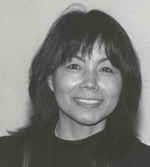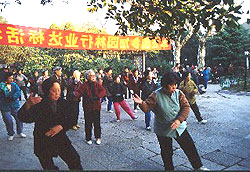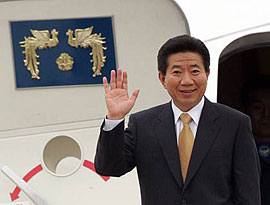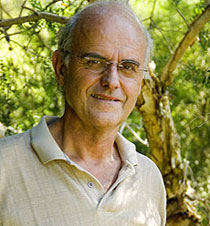Analysis
 |
A CHINESE VERSION OF CORPORATE CULTUREby Colin Hawes, Senior Lecturer, Faculty of Law, University of Technology Sydney |
|
In recent years, there has been an explosion of interest in ‘corporate culture’ (qiye wenhua) among large state-controlled and privately-managed Chinese corporations. This is partly because the Chinese government has strongly promoted the concept through the Communist Party committees established within most Chinese corporations. A recent policy document describes the government’s vision of corporate culture. First, it will be a ‘progressive corporate culture’ that ‘strengthens the [Communist] Party’s hold on power … and brings about a harmonious socialist society’. Second, it will help firms to ‘build a high quality workforce and encourage people to develop to their full potential … will enable corporations to improve the quality of their management, strengthen their internal cohesion, and build their core competitiveness’. And third, corporate culture will cultivate employees, especially educating them in the ‘outstanding legacy’ of traditional Chinese culture: ‘[Firms] must provide healthy and beneficial cultural products to raise the cultural level of employees and expand the effectiveness of corporate culture promotion. They must guide and strengthen group cultural activities such as photography, calligraphy, art, literature and sports, … in order to satisfy employees’ spiritual and cultural thirst for knowledge, beauty and pleasure.’ Yet despite this clear government encouragement, it would be misleading to view the widespread implementation of corporate culture change programs in China as merely a top-down exercise of political control. This is because, first, the Chinese Communist Party (CCP) has itself undergone a massive transformation in the past decade. It has become much more responsive to the needs of businesses and willing to adapt its role within corporations to assist the activities of corporate executives and to improve company profits. |
In fact, the current CCP Party Constitution states categorically that ‘the Communist Party of China must persist in taking economic development as the central task, making all other work subordinated to and serving this central task’. Secondly, many corporate executives – even in privately-managed corporations – have found that incorporating Communist-style indoctrination methods into their corporate culture change programs helps to create a disciplined and productive workforce, and thereby increases their firm’s profits. And finally, rank and file employees are themselves unwilling to relinquish certain aspects of the former socialist enterprise system, such as the provision of a range of cultural and educational activities for employees, along with various other employee benefits such as subsidised meals and housing. Hence, even CEOs of privately-managed firms find themselves obliged to provide such benefits (and to promote these as part of their firm’s ‘culture’) simply in order to avoid losing staff to other firms. So the corporate culture phenomenon in China is part of a pragmatic and complex interaction between the CCP, corporate managers, and employees, in which each group must try to accommodate the interests of the others. |
And through this interaction, the imported Anglo-American idea of the corporation as a profit-maximising, shareholder-centred business entity has been transformed into a uniquely Chinese corporate identity that combines economic, political and social/cultural functions, and claims to be dedicated to the individual improvement of its employees as well as to the management and the strengthening of the Chinese nation. Links:
|

 |
A REVIEW OF ROH MOO-HYUN'S LEADERSHIP: IN LIGHT OF KOREA'S STATE OF DEMOCRATIC CONSOLIDATIONby Kim Hyung-a, Department of Political & Social Change, Australian National University hyunga.kim@anu.edu.au |
|
On his presidential victory in December 2002, Roh Moo-hyun was seen as a symbol of grass-roots democracy, born of a ‘revolution’ led by progressive democratisation forces, and supported especially by the younger generation. Some claimed that Roh’s rise to the presidency signalled Korean democracy entering its ‘second generation’, marking the end of the politics of the ‘Three Kims Era’, which focused on bossism and regional favouritism, and commencing a new era of open competition between the younger and older generations, and the progressive ‘reformists’ and anti-Communist conservatives. Ironically, however, ordinary Koreans quickly deserted Roh’s ‘Participatory Government’, asking ‘Does democracy feed us?’ Why are the Korean people so disillusioned with their democracy under the Roh Government? One key reason is Roh’s leadership style, which is seen by many as politically divisive, ideologically ambiguous and economically incompetent. His government has performed poorly in introducing policies which could enhance ordinary people’s livelihoods. Politically, Roh relied on a binary populist tactic - known as the ‘Roh Moo-hyun code’ - akin to the ‘us versus them’ approach. This was especially evident in his appointment of presidential staff. But faced with a critical shortage of experienced people around him, Roh also had to recruit many professional bureaucrats, creating a two-layered grouping within his office which, in effect, also divided Korea’s powerful state bureaucracy. To his credit, however, Roh made a significant contribution in restoring the autonomy of the judiciary, while also putting an end to illegal money politics, |
risking even his own impeachment. He also expanded mass participation at both public and state-governance levels which, ironically, added to Roh’s political constraints. Ideologically, Roh’s leadership-style showed ambiguity. This was evident in his pursuing a conciliatory ‘Sunshine Policy’ toward North Korea, which focused on peace and prosperity, while also seeking a revision of Korea-US relations aimed at restoring Korea’s defence autonomy. From the beginning, however, Roh and his government were ignored by the Bush Administration’s decision-making radar, especially in the course of the Six-Party Talks on North Korea’s nuclear program involving the two Koreas, the US, China, Japan, and Russia. Despite the Six-Party Talks Agreement, signed on 13 February 2007, and the signing of the Korea-US Free Trade Agreement, among others, Roh’s relations with the Bush Administration improved very little.
|
Roh’s leadership failure is most widely criticised for his government’s incompetent economic management and for failing to meet expectations that it narrow income disparity. Social polarisation in Korea was recently ranked the third largest among 20 of the 30 OECD member countries, while there is an overall erosion of the middle class. According to the National Statistical Office, the top twenty per cent of urban households earned 4.98 times more than the bottom 20 per cent in the second quarter of this year, and increase on the previous year. Another critical problem is the rapid increase of casual workers, who now number 8.4 million. Systematic discrimination against female casual workers has also become a major social problem. So, despite notable improvement in political openness and transparency, many Koreans claim Roh’s failed leadership to be the cause of the ‘hijacking’ of Korean democracy. Links:
|

Profile
| This month we profile
Anton Lucas, Associate Professor in the School of Political and International
Studies Faculty of Social Sciences at Flinders University and Director
of the Flinders Asia Centre http://www.socsci.flinders.edu.au/spis/staff/lucas.php |
||
|
Nevertheless, inspired by the Asian language skills of many ex-Peace Corp students in the EWC social sciences and humanities program, I started Indonesian, then convinced the EWC to let me change my major to Asian Studies. I took Asian history, including a spellbinding course on early Southeast Asia with J.J. de Casparis and Robert van Niel on the modern period, as well as Indian and Chinese history. By mid-1970 I was off to Yogyakarta for ‘language fieldwork’ to complete my second major. The otherness of the place got me in first – particularly the performing arts, the temples and the food. Then there was the reformism of Yogya students, who impressed me with their idealism and their practical attempts to help the poor, for instance by building a water supply for remote villages on the slopes of Mt Merapi or doing community development work in remote coastal villages. Professor Sartono Kartodirjo let me sit in on his subject themes in modern Indonesian history at Gadjah Mada Univeristy, and suggested I do a local study of the Indonesian revolution based on interviews, which I did. A milestone for me was meeting Herb Feith at the 1970 World Orientalist Conference at the Australian National University. He was an inspiration to my generation. Later I studied at the ANU’s Research School of Pacific Studies with Tony Reid (who supervised my PhD thesis on the Three Regions Affair in 1945 in north central Java). |
Q: What
are your current preoccupations? Q: What are your hopes for Asian Studies in
Australia? Links:
|
|

Postgraduate of the month
|
Priya Chacko (priya.chacko@adelaide.edu.au) began her Arts degree at the University of Adelaide thinking she would focus on studying China or Japan. However, a desire to understand the labyrinthine politics of India, where she was born, led her to take a development politics course which was wonderfully taught by a South Asia specialist, Peter Mayer. Ever since then, she’s been hooked. Priya went on to do an intern at Parliament House in
Canberra where she wrote a report on the Indian economy and then did
an honours thesis on religious nationalism in South Asia at the University
of Queensland. She is currently completing a doctoral thesis that analyses
India’s foreign policy. Her thesis suggests that there are many
aspects of India’s foreign policy behaviour that can’t be
adequately explained by conventional theories of international relations
and argues that taking into account the historical and cultural context,
including questions of gender and race, of the construction of state
identity, offers a fuller understanding. |
In 2006, Priya’s doctoral research took her to India for three months where she engaged with policy makers and academics and attended several lively conferences and seminars – the ‘argumentative Indian’ is no cliché! She also got a taste of life as a postgraduate student in India as a visiting scholar at the Centre for the Study of Geopolitics at Punjab University. Apart from the frequent tea breaks with friends at Punjab, as opposed to frequent coffee breaks with friends at Adelaide, she found surprisingly little difference between postgraduate life in India and Australia! Her doctoral research has inspired an interest in the international political thought of Mahatma Gandhi and Jawaharlal Nehru, in the Naxalite movement and in Indian conceptions and discourses of ‘security’. It is in these directions that she plans to take her future research and welcomes anyone with similar interests to make contact. Priya is currently an associate lecturer in the School of History and Politics, University of Adelaide. |

Website of the month
| http://www.onlinenewspapers.com/pakistan.htm Given the volatile situation in Pakistan, readers may wish to see what the Pakistani press is saying. http://www.onlinenewspapers.com/pakistan.htm See also the International Crisis Group’s report, Winding Back Martial Law in Pakistan, http://www.crisisgroup.org/home/index.cfm?id=5156&l=1
|
Recent publication of interest
|
Indonesia and climate change: current status and policies by PT Pelangi Energi Abadi Citra Enviro (PEACE), World Bank and DFID (UK Development Agency). This report discusses emissions, impacts, and policy constraints faced by Indonesia to cope with climate change. It highlights several key gaps in policies and mechanisms in sectors related to climate change. The report provides the most up-to-date information on Indonesia and climate change that can serve as a starting point for further discussions on the issue. http://siteresources.worldbank.org/INTINDONESIA/Resources/Environment/ClimateChange_Full_EN.pdf
|

Did you know?
| ‘A blinkered approach to languages’ by Luke Slattery in the 7 November edition of the Higher Education Supplement of The Australian http://www.theaustralian.news.com.au/story/0,25197,22713684-11952,00.html argued that Kevin Rudd’s desire to see mass Asia literacy in the next generation is a flawed plan: ‘To the extent that it promotes a small number of Asian languages for mercantile reasons, it is unnecessarily blinkered and possibly counterproductive.’ Slattery argued that ‘the really urgent national question concerns Australia's failure to develop bilingualism of any depth. The Asian literacy push, with its heavy loading of instrumentalist rhetoric, diverts attention from this aim.’ Slattery’s article prompted Hal Colebatch to respond by pointing out that Kevin Rudd is the first politician since Malcolm Fraser to have raised foreign languages as a policy issue, something for which he should be thanked not criticised. http://www.theaustralian.news.com.au/story/0,25197,22756201-21682,00.html Asian Currents welcomes the debate. |

Diary dates
| Education
in Vietnam Today: Changes and Challenges, 2007 Vietnam Update, 29-30
November, Canberra. Information on the 2007 Vietnam Update,
to be held at the Australian National University on 29-30 November,
is available on the conference website:
KRISHNA - LOVE AND DEVOTION EXHIBITION, 6 October - 16 March, Melbourne. Krishna is one of the most popular of the Hindu gods worshipped throughout Asia and in particular India. The exhibition will explore Krishna iconography, through approximately 70 works including paintings, sculpture, textiles, photography, and jewellery. Asian Tempore Exhibition Space, Level 1, National Gallery Victoria International, 180 St Kilda Road www.ngv.vic.gov.au/krishna/index.html RADICAL ELEGANCE EXHIBITION, 1 November - 17 February, Perth. This is an exhibition of women's clothing by the renowned Japanese couturier Yohji Yamamoto, whose garments have been a significant influence on contemporary haute couture and prêt à porter clothes since his Paris debut in 1982. Art Gallery of Western Australia, Perth Cultural Centre, Perth. www.artgallery.wa.gov.au/exhibitions/Yamamoto.asp 'OCCUPYING 'THE OTHER': AUSTRALIA AND MILITARY OCCUPATIONS FROM JAPAN TO IRAQ'. 29-30 November 2007, Wollongong. This symposium sponsored by the Japan Foundation, the Centre for Asia Pacific Social Transformation Studies (CAPSTRANS) at the University of Wollongong and Monash University aims to bring together journalists, public commentators and scholars investigating Australian involvement in foreign military occupations. Contact Dr Christine de Matos cdm@uow.edu.au NORTH EAST ASIA - DRIVING WA'S EXPORT BOOM,
3 December, Perth. Austrade’s Northeast Asia Regional
Director, Laurie Smith, and his team will provide up-to-date insights
connected with business and trade opportunities in North East Asian
markets, including an analysis of their impact on current prosperous
conditions and a forecast of their ongoing performances. WA Chamber
of Commerce and Industry Function Centre Level 4, 180 Hay Street, East
Perth, 3.30pm to 6.30 pm, Cost $70. Call Austrade Direct on 132878 or
email info@austrade.gov.au |
ASIA PACIFIC WEEK 2008: Building Australia’s Asia Pacific Expertise, 29 January - 1 February 2008, Canberra. During one week of activities graduate students from Australia and the region will have a chance to present their research interests, meet with other students and academics, participate in a wide range of training activities, be introduced to the rich holdings on Asia and the Pacific at the ANU Library and at the National Library and participate in a stimulating program of events including cross-area workshops, keynote speeches, seminars and master classes, film screenings, cultural performances and social events. See http://rspas.anu.edu.au/asiapacificweek THE COLD WAR IN ASIA: THE CULTURAL DIMENSION,
24-25 March 2008, Singapore. This conference will investigate
how Asian actors in the Cold War adhered to certain Cold War doctrines
or ideologies and how their cultural perceptions predisposed them towards
certain policies or to the political engagement between states and social
forces on the cultural front. Venue: Asia Research Institute, National
University of Singapore. http://www.ari.nus.edu.sg/events_categorydetails. CRITICAL HAN STUDIES SYMPOSIUM & WORKSHOP,
24-27 April 2008, Stanford University. Call for Papers. Han
is a colossal category of identity that encompasses ninety-four percent
of the population of mainland China, making it the largest ethnic group
on earth. Participants in the first-ever Critical Han Studies Symposium
& Workshop will help develop materials to be published in two path-breaking
volumes: Critical Han Studies, an edited volume, and the Critical Han
Studies Reader, a collection of primary source materials in translation.
The deadline for paper and panel proposals is 3 December 2007. For more
information contact Professor Thomas S. Mullaney at tsmullaney@stanford.edu
or James Leibold at Latrobe University: TRANSITION AND INTERCHANGE Ninth Women in Asia Conference, 29 September-1 October 2008, Brisbane. The University of Queensland is hosting the ninth Women in Asia (WIA) Conference, to be held from 29 September-1 October, 2008. Call for Papers: Contributions are invited from various disciplines on a large number of themes concerning the lives of women in Asia. Participants are encouraged to submit proposals for panels (with 3-4 papers per panel). Individual proposals are also welcome. Enquiries can be addressed to wia@uq.edu.au |

You are welcome to advertise Asia-related events in this space. Send details to: fbeddie@ozemail.com.au
Feedback
What would be useful for you? Human interest stories, profiles of successful graduates of Asian studies, more news about what's on, moderated discussions on topical issues? Send your ideas to fbeddie@ozemail.com.au.
About the ASAA
The Asian Studies Association of Australia (ASAA) promotes
the study of Asian languages, societies, cultures, and politics in Australia,
supports teaching and research in Asian studies and works towards an understanding
of Asia in the community at large. It publishes the Asian Studies Review
journal and holds a biennial conference. ASAA and the Centre for Language
Studies at National University of Singapore also co-publish an annual supplementary
issue of the Centre's fully peer-reviewed electronic Foreign Language Teaching
Journal (e-FLT). See http://e-flt.nus.edu.sg
The ASAA believes there is an urgent need to develop a strategy to preserve,
renew and extend Australian expertise about Asia. It has called on the government
to show national leadership in the promotion of Australia’s Asia knowledge
and skills. See Maximizing Australia's Asia Knowledge Repositioning and
Renewal of a National Asset http://coombs.anu.edu.au/SpecialProj/ASAA/asia-knowledge-book-v70.pdf
Asian Currents is published by the Asian Studies Association of Australia (ASAA) http://coombs.anu.edu.au/ASAA/ thanks to a grant from the International Centre of Excellence for Asia Pacific Studies (ICEAPS) http://iceaps.anu.edu.au. It is edited by Francesca Beddie. The editorial board consists of Robert Cribb, ASAA President, Michele Ford, ASAA Secretary, Mina Roces, ASAA Publications officer, Tamara Jacka, ASAA Council member, and Ann Kumar, Director, ICEAPS.



 Q:
How did you become interested in studying Asia and why?
Q:
How did you become interested in studying Asia and why?  SISA:
RE-USE, COLLABORATIONS AND CULTURAL ACTIVISM FROM INDONESIA, 6 November
– 7 December 2007. Artist talks on 30 November, Sydney.
An exhibition of art focusing on contemporary Indonesian environmental
activism and featuring the following collectives and artists: Tanam
Untuk Kehidupan (Salatiga) Taring Padi (Yogyakarta), Anakseribupulau
(Randublatung), Belanak Art Community (Padang), Irennius Pungky, Duto
Hardono, Indra Yanti, Arya Jalu, Aris Prabawa, Ade Darmawan and Rebecca
Conroy, Bob Sick, Acongonyen, Toni Volunteero, Dodi Irwandi, Agus Budi
Cahyono, S. Teddy D. Friday 30 November from 3.30pm – Artist talks
and film screening. Free, UTS Gallery: Level 4, 702 Harris St, Mon-Fri
12-6pm 02- 9514 1652. Further Information: Anneke Jaspers, Assistant
Curator,
SISA:
RE-USE, COLLABORATIONS AND CULTURAL ACTIVISM FROM INDONESIA, 6 November
– 7 December 2007. Artist talks on 30 November, Sydney.
An exhibition of art focusing on contemporary Indonesian environmental
activism and featuring the following collectives and artists: Tanam
Untuk Kehidupan (Salatiga) Taring Padi (Yogyakarta), Anakseribupulau
(Randublatung), Belanak Art Community (Padang), Irennius Pungky, Duto
Hardono, Indra Yanti, Arya Jalu, Aris Prabawa, Ade Darmawan and Rebecca
Conroy, Bob Sick, Acongonyen, Toni Volunteero, Dodi Irwandi, Agus Budi
Cahyono, S. Teddy D. Friday 30 November from 3.30pm – Artist talks
and film screening. Free, UTS Gallery: Level 4, 702 Harris St, Mon-Fri
12-6pm 02- 9514 1652. Further Information: Anneke Jaspers, Assistant
Curator,